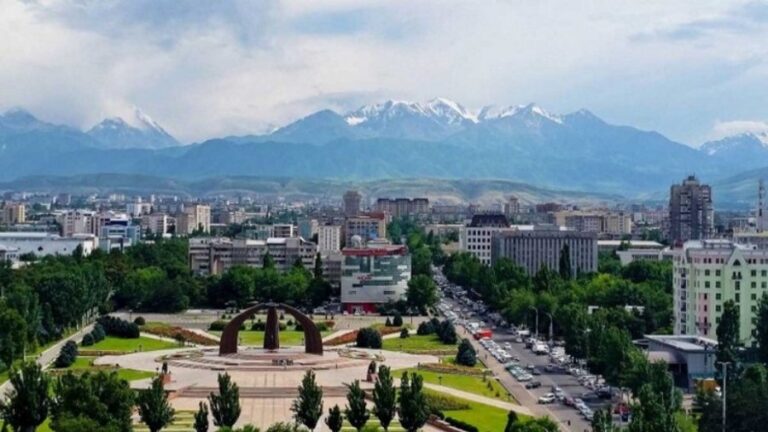Another Chapter in the Chronicles of the Trade War between Japan and South Korea
The tense relations between Seoul and Tokyo are a constant subject of the author’s attention, and his most recent piece on the topic addressed how the issue of forced labor has been added on top of that about Korean comfort women. After all – in comparison with fifteen grandmothers – they went through a lot more, and multimillion-dollar lawsuits can be brought against large companies that are conditionally considered to be the successors of those that existed during the colonial period. Actually, this is what has provoked the trade war, whose course did not change after Suga replaced Abe at the helm in Japan.
No, South Korea periodically offers various options for reconciliation, but reconciliation still entails concessions. For example, back in the day former speaker of parliament Moon Hee-sang proposed that both countries create a fund using money collected from businesses and people from both countries to pay out compensation to the victims. Then, on July 2, 2020, civic and religious organizations from the two countries tried to launch another campaign to “promote reconciliation,” but in actuality the matter did not go beyond the ceremonial launch of a “platform of reconciliation”, as well as appeals to peacefully resolve issues related to historical memory. Everything boiled down to routine demands to “reveal the truth” about the “comfort women”, pay them compensation, and deliver a sincere apology. “The Japanese government and parliament should establish a commission to establish the truth and investigate the 1923 massacre of Koreans in the aftermath of the Great Kanto earthquake, as well as wartime sexual slavery and forced labor”.
This does not come as a surprise, since on the Korean side the tone was set by NGOs like the Korean Council for Justice and Remembrance, which became famous for their business making money off grandmothers, and on the Japanese side by Christian and pacifist organizations, which are more concerned with preserving the post-war Constitution.
The only interesting thing is that a new requirement has been added to the other familiar topics: acknowledging Japan’s responsibility for the massacres of Koreans after the 1923 Great Kanto earthquake. Then, against the backdrop of that tragedy, rumors started to spread that Koreans were looting and sabotaging as part of their independence movement. This caused thousands of casualties among Koreans, and recently some pro-Japanese scholars have tried to criticize the myth of their country’s innocence, claiming that these kinds of acts did take place.
On August 5, 2020, a memorial service was held in Japan for Koreans who were forcibly taken to the country during World War II – and then died as a result of the atomic bomb dropped on Hiroshima. There are officially 2,773 of them, but the pro-South Korean diaspora organization “Cheilmindan” believes that the actual number of victims exceeds 20,000 people. It seems that now the Korean victims of the atomic bombings are a reason to put forth additional claims to Japan.
On August 14, during a public speech to mark the occasion of the Day of Remembrance for the Victims of Sexual Slavery, Moon Jae-in affirmed that this problem remains the main one in relations between Seoul and Tokyo, and said that the South Korean government will make efforts to resolve the issue unless the remaining comfort girls that are alive announce that the problem has been resolved in a sufficiently fair manner. This statement is quite amusing, given that most of the surviving victims are very elderly people and, as the scandal making a profit off grandmothers has shown, they are extremely dependent on their entourage of NGO activists.
In November 2020, the director of the South Korean National Intelligence Service, Park Jie-won, traveled to Japan, where he met with Japanese Prime Minister Yoshihide Suga, the secretary general of the ruling party, Toshihiro Nikai, and the National Security Secretariat Secretary General, Shigeru Kitamura. This was Suga’s first meeting with a high-ranking Korean official, and according to Park, they also discussed the 2020 summit between the heads of state from South Korea, China, and Japan – something that never took place – as well as sensitive issues inherent in the relations between the two countries. However, on November 13 Suga met with a group of South Korean lawmakers, where he reiterated his stance that Seoul should take the first step towards reconciliation.
At the end of 2020, the sides sent each other new ambassadors, and while Japan is represented in Seoul by the former ambassador to Israel, Koichi Aiboshi, then more details are needed on Kang Chang-il, the South Korean ambassador in Tokyo. Kang graduated from the University of Tokyo, and was once the head of the South Korean-Japanese parliamentary union, but has become well-known chiefly for his very daring anti-Japanese statements. For example, he has regularly called the Japanese Emperor a king, and in May 2011, as an opposition deputy, he visited Kunashir Island and stated that the “northern territories” belong to Russia.
Conservative media, however, noted that this is the first time a politician has been appointed as the ambassador to Japan. Kang has good connections in the country, but it is not clear to what extent this kind of an odious politician will make positive contributions to resolving controversial issues. Social media users also felt that “appointing a person who is hostile to Japan as an ambassador is the first step towards breaking off relations”.
However, as an ambassador Kang has demonstrated a remarkable ability to “do an abrupt about-face”. He admitted that when in office he should call the Japanese Emperor an emperor, and as for the phrase about the Kuril Islands, it turns out that he meant that Russia had seized and occupied the islands, but Kang’s statement had been misinterpreted.
On December 3, the South Korean presidential administration denied reports that the annual trilateral summit between South Korea, China, and Japan would be postponed to next year. Earlier in the day, the Japanese newspaper Nikkei reported that holding the annual trilateral summit this year would be postponed because the conditions under which Moon Jae-in and Yoshihide Suga could meet in person had not yet been agreed upon. And although the spokesman for the Blue House, Kang Min-suk, claimed that no decision had been made regarding the South Korea-China-Japan summit, back in 2020 it was not held.
On December 11, 2020, a South Korean court dismissed two appeals filed by Nippon Steel & Sumitomo Metal Corporation representing a continuation of the 2018 court ruling over Seoul’s decision to seize the company’s assets. Actually, it was one of the first lawsuits that started the trade war: Nippon Steel was ordered to pay four South Koreans 100 million won (91,600 USD) each in compensation for the forced labor and unpaid work they suffered during WWII. To continue this stalled process, the court introduced a legal procedure for a public notice, which is something that is issued if the defendant does not respond to subpoenas. The assets seized are 194,794 shares in PNR worth approximately 973 million won; this is a joint venture between Nippon Steel and the South Korean steel company POSCO, which recycles steel manufacturing byproducts.
On December 28, 2020, the procedure became possible to partially sell off some Mitsubishi Heavy Industries property assets in the territory of South Korea. As in the case involving Nippon Steel, South Koreans have resorted to the practice of issuing public notices. Naturally, the Japanese side immediately filed an appeal against this decision. A company spokesman told Japanese media that the South Koreans could not file any claims for compensation, since the issue was settled by an agreement that was signed in 1965.
On January 18, South Korean President Moon Jae-in held a New Year’s press conference, where – unexpectedly for some – he said that Seoul respects its past diplomatic agreements.
The day before, on January 17, Kang Chang-il underscored his commitment to finding political solutions to historical conflicts, and also stressed that both sides should not repeat the mistakes committed in the past.
On January 22, Kang Chang-il again pointed out that the speech made by the South Korean president confirms the firm intentions held by the South Korean government to improve relations with Japan. Recognizing the existence of long-standing historical conflicts between the two countries, the ambassador said that his heart was “a little heavy”, but that he would try to “unravel the knots one by one”.
On March 1, 2021, in a public speech made marking the occasion of the anniversary of the March 1st independence movement, President Moon said that South Korea was ready to sit down with Japan at the negotiating table, and start a dialogue anytime. He noted that neighboring countries can “wisely” resolve issues that remain unresolved and are related to their common history, as long as they take into account each other’s interests. The head of state noted the need to overcome this obstacle in the form of the inability to separate historical issues from efforts put forth to establish ties oriented toward the future.
The conservative newspaper JoongAng Ilbo, however, criticized the statement because it did not specify how the current dispute should be resolved, and these are still words, not actions. Yes, compared to the statements made on March 1 and August 15, 2020, this represents a step forward (back then the leader of South Korea emphasized these Japanese atrocities), but so far there is nothing that backs up the words. Minister of Foreign Affairs Chung Eui-yong has not yet spoken to his Japanese counterpart, and neither of the new ambassadors has met with the foreign ministers in the host countries. The more centrist Korea Times called Moon’s speech a conciliatory gesture, but noted that a breakthrough was unlikely anytime soon. More flexibility was demanded from Japan.
On March 11, 2021, the sides both held events dedicated to the 10th anniversary of the accident at the Fukushima Daiichi Nuclear Power Plant. Minister of Foreign Affairs Chung Eui-yong sent a message to his Japanese counterpart Toshimitsu Motegi with condolences for the families of the victims, who endured tremendous grief. In addition, the message said Seoul will continue efforts to build a “future-oriented” relationship between the two countries by cooperating in the fight against the COVID-19 pandemic and natural disasters.
On March 17, 2021, the Japanese foreign minister finally replied to Chung Eui-yong, and although the letter arrived a week afterwards, it was the first communication between the ministers.
On March 26, 2021, at a regular court hearing, Nippon Steel reiterated its statement that the issue involving compensation payments related to the colonial past had been settled by the 1965 agreement. In addition, Nippon Steel is different from Japan Iron, and cannot be a successor that bears the responsibilities of wartime steelworkers.
On March 31, 2021, Chung Eui-yong announced that he hoped to meet with his counterpart, and on April 1 the head of the Asia and Pacific Department, Lee Sang-Ryul, held a closed-door meeting in Japan with his Japanese counterpart, Takehiro Funakoshi. However, the meeting participants failed to find any common ground for key issues in their bilateral relations. According to diplomatic sources, during the talks they discussed the problems of compensation for Korean victims, both of forced labor in the colonial period and sexual slavery during WWII. The Japanese side reiterated its previous position, according to which solving these problems depends on Seoul, and the South Korean diplomat called for searching for solutions via a dialogue between the governments.
On April 10, 2021, the Seoul authorities canceled a construction permit for the new Japanese embassy building, citing construction schedule slippage. This is a rather curious story, since in 2015 the authorities gave a permit to construct a new six-story building, and a few years ago the previous embassy building was demolished. The staff moved to offices in neighboring high-rise buildings, but although construction was supposed to begin within a year after the permit was issued, it was repeatedly postponed, and now there is only a half-flooded foundation pit on this site. Moreover, landlords are causing problems for the Japanese embassy, since the weekly protests hurt their image. In addition, all of a sudden it turned out that the construction required an additional permit from the Cultural Heritage Administration, since the area for the proposed embassy is a protected area where buildings that are specifically higher han 30 meters cannot be erected.
On April 15, 2021, Kyodo Tsushin, citing several diplomatic sources, reported that the United States, South Korea, and Japan postponed negotiations between the heads of their diplomatic services, among other things due to the deterioration of relations between Seoul and Tokyo.
On May 5, Chung Eui-yong and Toshimitsu Motegi finally met face-to-face on the sidelines of the G7 meeting in London. During the 20-minute talks, the parties “shared an understanding of the need for close cooperation,” however, despite the “good atmosphere at the meeting” according to Chung, existing differences on all the key issues were successfully substantiated: from comfort women to Tokyo’s decision to dump water from the Fukushima Daiichi Nuclear Power Plant into the Pacific Ocean. An agreement was reached only on the need for cooperation to denuclearize the Korean Peninsula.
Concerning compensation to comfort women for damages, Toshimitsu Motegi repeated that the issue was resolved as a result of a bilateral agreement signed in 1965, and through intergovernmental agreements reached in 2015. The Japanese politician called the ruling delivered by the South Korean courts on paying compensation to the victims a violation of international law. In response, the head of the South Korean Foreign Ministry said that historical problems cannot be resolved without the Japanese side correctly perceiving history.
In this regard, media outlets noted that after the long-awaited meeting, diplomatic tensions between the two countries are unlikely to diminish, and it would be good to start work organizing the Moon-Suga summit, which is something that could take place on the sidelines of the G7 summit.
On May 11, Mitsubishi Heavy Industries Ltd. again filed an appeal against the ruling by the South Korean court to confiscate its assets. During those same days, Park Jie-won went on a new visit to Tokyo, where he met with his counterpart Hiroaki Takizawa, as well as the director of the US National Intelligence Service, Avril Haines.
On May 12, Park Jie-won paid Yoshihide Suga a courtesy call, and delivered a spoken message from Moon Jae-in, to which Suga allegedly responded positively. According to a diplomatic source, the South Korean representative noted that relations between these neighboring countries “should not remain the same as they are now”.
Summing up the results of this period, it is worth noting the following. On the one hand, Anti-Japaneseism and attempts to get money from Japanese companies through the courts are not going anywhere, and will not go away, although the problems of the trade war have been buried by the coronavirus pandemic. On the other hand, with the arrival of the new administration the United States began to more actively transform the Washington-Seoul-Tokyo alliance into a triangle, instead of the letter L that can be traced now.
As part of “rebuilding alliances,” the United States has begun to make serious efforts to put a stop to the Japan-South Korean trade war, and in this context pressure is starting to be exerted on Seoul to such an extent that South Korea has been advised to stick to the outcome of the 2015 agreement. Indeed, as one of the author’s commentators noted, no matter how much the democrats claimed that this deal did not correspond to the interests of the people, the agreement was never officially denounced, and the money paid out by Japan and spent on compensation was never returned.
As a result, this period is characterized by conflicting signals. It is clear that Seoul seems to be happy to put an end to the conflict and reduce the scale of the confrontation, which now gives it no benefit and, on the contrary, elicits Washington’s displeasure. But it is impossible to make any obvious concessions, and therefore Tokyo constantly calls for “sincerity”, implying surrendering positions, while the principled position taken by the Japanese side is that Seoul should change the approaches it adopts. Everything else so far boils down to diplomats talking, and ordinary phrases about understanding problems and the need to develop and strengthen relations. However, as the author has already noted, it seems that despite the strong statements during Moon’s last year the level of anti-Japanese rhetoric will decrease somewhat, thanks to pressure from the United States.







